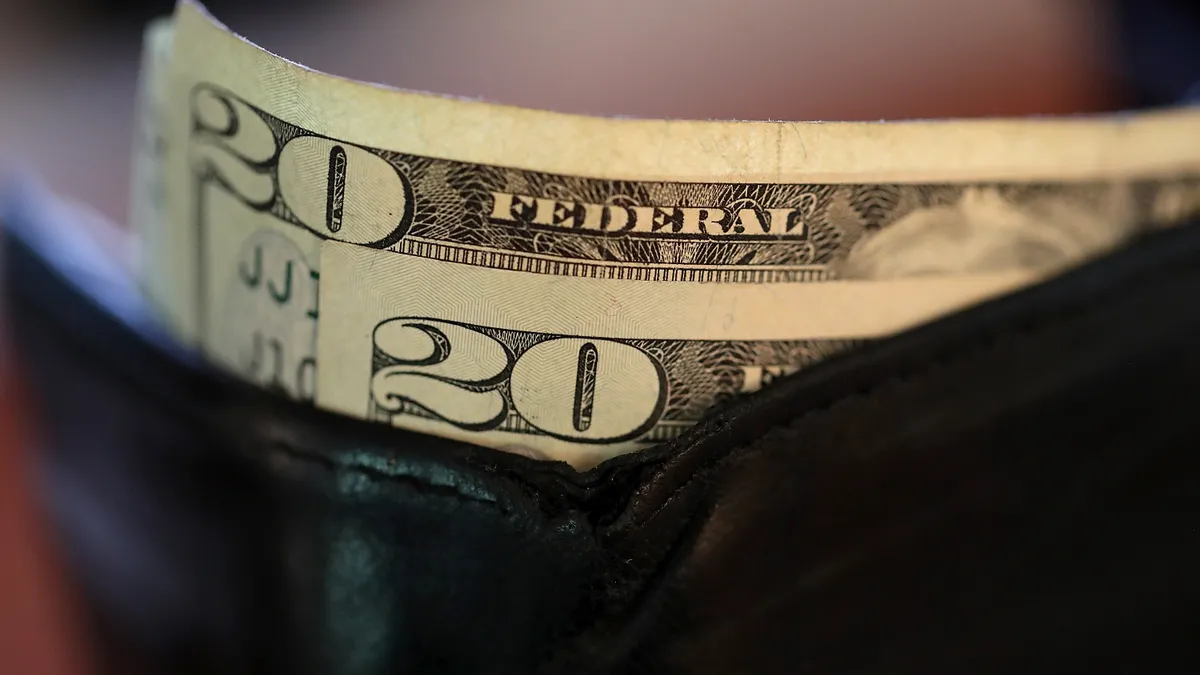Dive Brief:
- Florida may require merchants to accept cash, among other forms of payment for goods and services, if legislation currently pending in the state’s legislature is enacted.
- The legislation, introduced in the Florida House in September and the state Senate in October, would require certain businesses to accept cash payments “for any transaction involving the purchase of any tangible good or any service” and would bar merchants from adding fees to or placing conditions on cash transactions, according to the text of the Senate bill.
- Senate Bill 106 and its House counterpart, House Bill 35, which have bipartisan support, are currently sitting in committees in each chamber of the legislature.
Dive Insight:
There are exemptions to the legislation Florida lawmakers are weighing. It wouldn’t apply to sales occurring online, by phone or mail, or businesses offering services from accountants, attorneys, consultants, financial advisers and certain other trades, according to the text of the bill.
Additionally, merchants wouldn’t have to accept cash for transactions if they suspect counterfeit bills are being used, or if a customer is trying to use cash denominations larger than $20.
Although cash use has declined in recent years, it’s still the primary payment type for millions of Americans, and lawmakers across the country have sought to protect the option to pay with cash. In October, a ban on cashless businesses took effect in Washington, D.C. More than a dozen states require some businesses to accept cash, and legislators in Wisconsin are currently considering a cashless ban. Similar bans have been put in place in Philadelphia, New York and San Francisco, sister publication Smart Cities Dive has reported.
There’s also legislation pending at the federal level: Last June, Congress members revived prior proposals by introducing legislation in the House and Senate to block businesses from declining cash for in-person retail purchases. Lawmakers behind the Congressional legislation say they seek to protect Americans who are unbanked or underbanked and may rely on cash.
In Florida, the legislation could also be viewed as crucial in light of the natural disasters the state frequently experiences, said Jay Zagorsky, a clinical associate professor at Boston University’s Questrom School of Business. “The cashless society depends on three pillars; continuous and stable electricity, robust telecommunications and secure computers,” he said in an email. “During major natural disasters, telephone networks go down, electricity grids fail and computers do not work.”
Forcing merchants to accept cash ensures businesses are prepared and have the equipment necessary to handle paper money in the event that electronic payments don't work, he said. “This bill ensures both financial inclusion and that businesses continue to operate when Mother Nature targets Florida,” Zagorsky said.
Cash use has waned in recent years as consumers most often turn to credit or debit cards, especially in online settings, or with mobile innovations such as digital wallets. Still, demand for cash has remained stable, and most consumers don’t expect to stop using cash in the future, according to the Federal Reserve’s Diary of Consumer Payment Choice report issued last May.
Cash made up 18% of all payments made in 2022, the Fed report said. Notably, one of the reasons for increased credit card use consumers cited was “lower rates of cash acceptance,” the Fed report said.
Sponsors of the Florida legislation, Democrat Sen. Shevrin Jones and Republican Rep. Joel Rudman, didn’t immediately respond to requests for comment.











